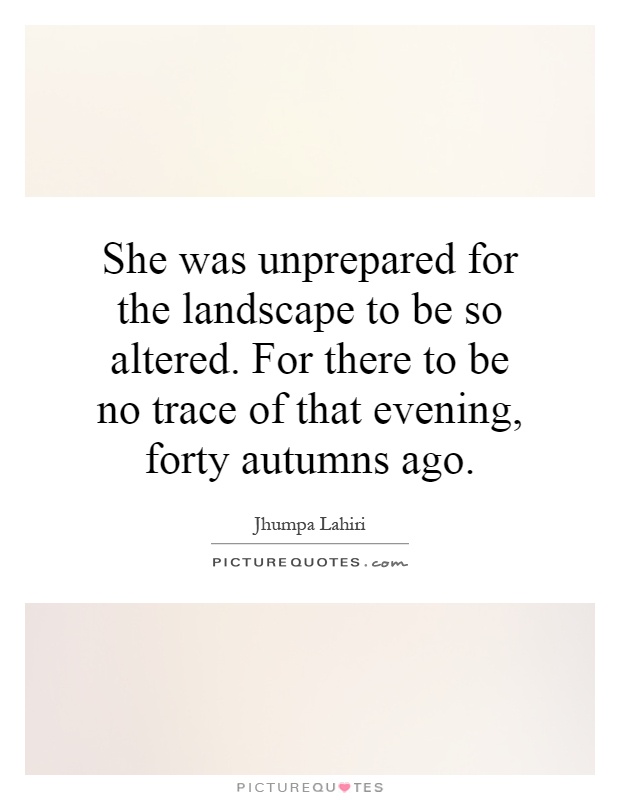She was unprepared for the landscape to be so altered. For there to be no trace of that evening, forty autumns ago

She was unprepared for the landscape to be so altered. For there to be no trace of that evening, forty autumns ago
In Jhumpa Lahiri's works, the theme of memory and its impact on individuals is a recurring motif. In the quote, "She was unprepared for the landscape to be so altered. For there to be no trace of that evening, forty autumns ago," Lahiri captures the essence of nostalgia and the passage of time. The protagonist in this scenario is confronted with the stark reality that the landscape she once knew has changed beyond recognition, erasing all traces of a significant moment in her past.Lahiri's writing often delves into the complexities of human relationships and the ways in which memories shape our identities. In this particular instance, the protagonist's sense of disorientation and loss is palpable as she grapples with the absence of familiar landmarks that once held deep personal significance. The passage of forty autumns serves as a poignant reminder of the relentless march of time and the inevitability of change.
The theme of displacement and alienation is also a common thread in Lahiri's works, as characters navigate the complexities of living in a foreign land while grappling with the ghosts of their past. In this quote, the protagonist's sense of displacement is heightened by the altered landscape, which serves as a physical manifestation of her internal turmoil. The absence of any trace of that evening forty autumns ago underscores the protagonist's sense of isolation and disconnection from her past.
Lahiri's evocative prose captures the bittersweet nature of memory, as the protagonist is forced to confront the impermanence of life and the fleeting nature of human experience. The landscape serves as a powerful metaphor for the passage of time, as the protagonist is left to grapple with the transience of memory and the inevitability of change. Through her nuanced exploration of memory and identity, Lahiri invites readers to reflect on the ways in which our past shapes our present and influences our future.












 Friendship Quotes
Friendship Quotes Love Quotes
Love Quotes Life Quotes
Life Quotes Funny Quotes
Funny Quotes Motivational Quotes
Motivational Quotes Inspirational Quotes
Inspirational Quotes